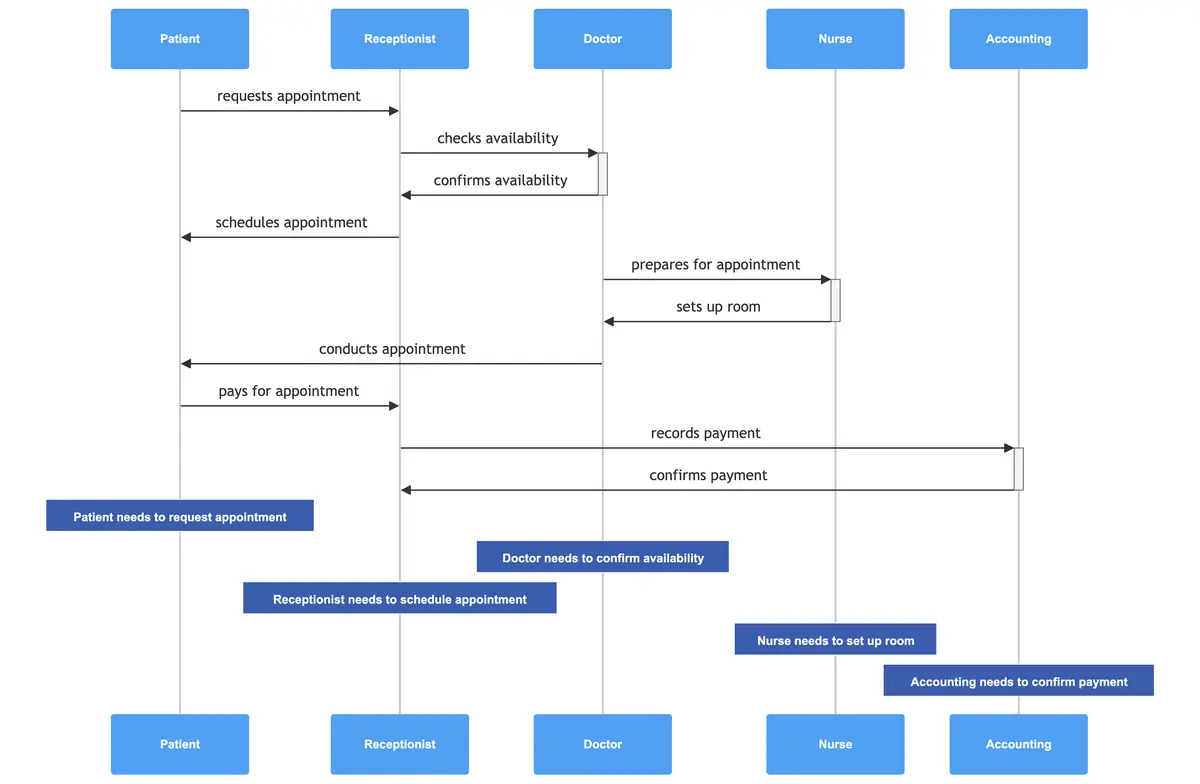This UML sequence diagram for a Doctor Appointment System illustrates the interaction between a patient, receptionist, doctor, nurse, and accounting department. The patient initiates the process by requesting an appointment, prompting the receptionist to check the doctor's availability. Upon confirmation from the doctor, the receptionist schedules the appointment and informs the patient. As the appointment date approaches, the doctor prepares by coordinating with the nurse to set up the examination room. During the appointment, the doctor conducts the examination with the patient. Afterward, the patient makes a payment, which the receptionist records and processes through the accounting department for confirmation.

Edit this diagram in Gleek
Doctor appointment system diagram code in Gleek
Patient- requests appointment -> Receptionist
Receptionist- checks availability ->+ Doctor
Doctor- confirms availability ->- Receptionist
Receptionist- schedules appointment -> Patient
Doctor- prepares for appointment ->+ Nurse
Nurse- sets up room ->- Doctor
Doctor- conducts appointment -> Patient
Patient- pays for appointment -> Receptionist
Receptionist- records payment ->+ Accounting
Accounting- confirms payment ->- Receptionist
Patient needs to request appointment:note -- Patient
Doctor needs to confirm availability:note -- Doctor
Receptionist needs to schedule appointment:note -- Receptionist
Nurse needs to set up room:note -- Nurse
Accounting needs to confirm payment:note -- Accounting
About sequence diagrams
Sequence or event diagrams help create an overview of how a system works. Sequence diagrams show how all the different parts interact with each other over time, carry out the required actions, and complete processes. A sequence diagram descends from top to bottom showing a sequence of interactions and sequence diagram notations.
Similar sequence diagram examples
Sales process sequence diagram
Library management sequence diagram
Insurance management system sequence diagram
Travel management system sequence diagram